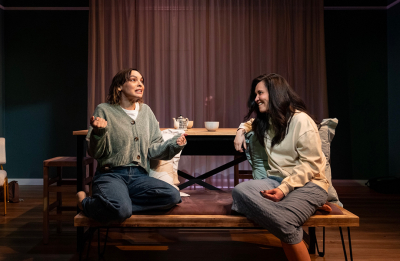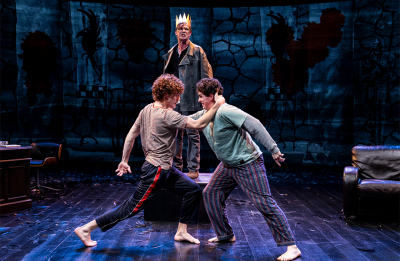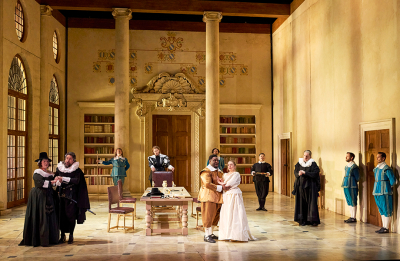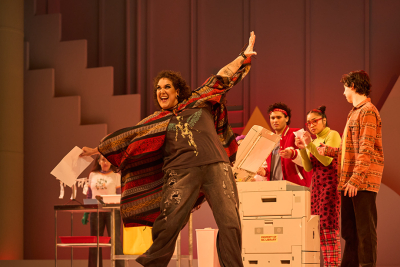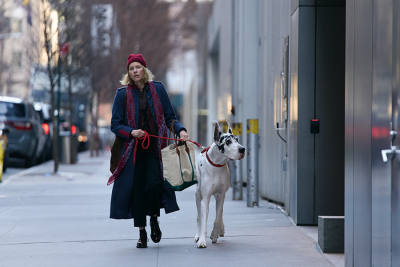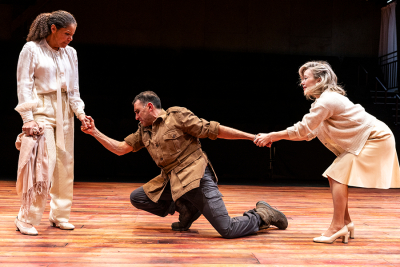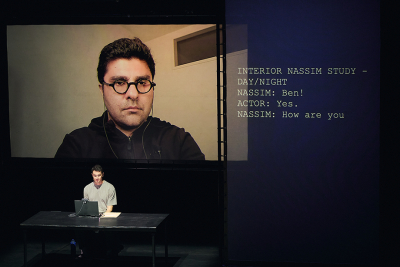Arts
Film | Theatre | Art | Opera | Music | Television | Festivals
Welcome to ABR Arts, home to some of Australia's best arts journalism. We review film, theatre, opera, music, television, art exhibitions – and more. To read ABR Arts articles in full, subscribe to ABR or take out an ABR Arts subscription. Both packages give full access to our arts reviews the moment they are published online and to our extensive arts archive.
Meanwhile, the ABR Arts e-newsletter, published every second Tuesday, will keep you up-to-date as to our recent arts reviews.
Recent reviews
Publicity notes for The Orchard outline the questions that provoked Pony Cam’s loose adaptation of Anton Chekhov’s The Cherry Orchard (1904): ‘You’ve inherited a redundant cherry orchard, a crumbling climate, a failing economy and the final play written by Anton Chekhov. What will you salvage? Will you survive the adaptation?’ As far as this audience member is concerned, the answers to those questions are indisputable: ‘Nothing’ and ‘No’.
... (read more)In the December 2024 issue of ABR, I reported that my cultural highlight for that year had been a screening of Pier Paolo Pasolini’s 1966 film, The Hawks and the Sparrows. Much of that film was narrated by a Marxist crow who explains ‘I come from far away, my country is called ideology, I live in the capital, the city of the future, on Karl Marx Street.’ Pasolini’s crow is weird, mordant, and scary. It will either eat you or school you in dialectic. The poet Ted Hughes also spent some of his 1960s thinking with corvids, publishing his poetry collection Crow in 1970. One of his poems has the crow realising that ‘God spoke Crow’, that the bird is the word, so to speak. These examples testify to the murky potency of the crow as an idea, as an animal that conveys sacrality, predation, and power. Grief Is the Thing with Feathers presents a different crow altogether, albeit one which acknowledges a debt to Hughes.
... (read more)Sydney has had its coldest July in decades, and the rain it raineth every day, but this did not deter operagoers from savouring two further offerings in the winter season: a fine revival of what must rate as one of Opera Australia’s best Mozart offerings, and a new production of Antonín Dvořák’s melodious fairy tale.
... (read more)We seem, bobbing in the slipstream of mega musicals like Les Misérables and Phantom of the Opera, to be living in the era of the chamber musical. Small scale, single-set productions with high concepts and minimal staging dominate the musical theatre landscape now, from Hamilton to Hadestown. Kimberly Akimbo, composed by Jeanine Tesori with book and lyrics by David Lindsay-Abaire, follows the general shape and emotional contours of Tesori’s previous chamber musical, an adaptation of Alison Bechdel’s graphic memoir Fun Home.
... (read more)A woman loses her friend to suicide and inherits his dog, by his wish. The dog is a Great Dane, the size of a pony, who grieves for its companion, the woman’s friend, steadfastly. It has none of the embarrassment that people can sometimes feel about their own grief, its depth and insistence, its noisiness. The dog lies on the woman’s bed, taking up space, and though the metaphor is obvious – a big grief, a big animal – it isn’t only a metaphor. Apollo, for such is his name, is real enough, and dog enough, to cause a mess.
... (read more)Among the plays of William Shakespeare, Coriolanus has garnered more respect than love. William Hazlitt, writing in 1816, in the wake of the French Revolution, thought that the play could spare its audience the trouble of reading Edmund Burke or Thomas Paine. The play’s depiction of class division fascinated Bertolt Brecht, who worked on his own adaptation, seeing in the play’s protagonist a figure consistent with the alienation effects of his own theatre. But if such recommendations inspire fears of a drama more didactic than entertaining, they can be dismissed: Bell Shakespeare’s production embraces its audience, ‘patrician’ and ‘plebeian’ alike.
... (read more)A week ago, on the stage of the Joan Sutherland Theatre, a desperate tenor killed his soprano lover in a blind, frustrated fury. This week the tenor hero is killed – if that is the right way to characterise it – by the soprano who loves him, but a different complex of emotions accompanies this operatic death as he dies blessing her.
... (read more)Since its creation in 2010, Iranian playwright Nassim Soleimanpour’s White Rabbit, Red Rabbit has achieved the unlikeliest of theatrical fates: it is understood to be both experimental and successful. It has been performed in more than thirty languages and by actors as starry as Michael Sheen, Stephen Fry, and Whoopi Goldberg. As with several of Soleimanpour’s other works, White Rabbit – presented by the Malthouse Theatre in 2013 – relied on the conceit that it is performed each night by a different actor who has never seen the script before, thus generating a particular kind of frisson by amplifying the audience’s uncertainty and sense of uncovering the text along with the unrehearsed performer.
... (read more)It is noteworthy that two of the operas in Opera Australia’s current season, Bizet’s Carmen and Puccini’s La Bohème, are among the five most performed operas, perhaps only rivaled by Verdi’s La Traviata. The website Operabase, viewed by many as the most authoritative opera performance information site, lists these three with Mozart’s The Magic Flute and Puccini’s Tosca as the top five. Director Peter Brook, when asked in 1983 about his choice to stage a new Carmen rather than any other opera, observed: ‘Out of the ten most popular operas, there is one that is the most popular – Carmen. And it’s not only an opera; it’s a phenomenon.’
... (read more)

